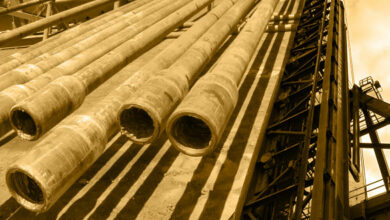From the Chairman: Industry must learn from Macondo, forge stronger relationships at all levels

The year 2010 will go down as one of the most significant in the history of the energy business. First and foremost, we must remember that the impacts of the Macondo incident in the Gulf of Mexico on the families of those men lost or injured can never be erased. Safety of people should always be top-of-mind in the way the industry operates. Our ability to accomplish that will also help lead us to further protection of the environment and avoidance of extreme economic loss.
In the days, weeks and months following the incident, IADC was a leader, not just a participant, in the dialogue surrounding the impacts of the moratorium. My role as 2010 chairman of IADC afforded me the opportunity to work very closely with other CEOs, operators, drilling contractors, service companies, and with the American Petroleum Institute, the National Ocean Industries Association, the Interior Department, numerous members of the US Senate and the House of Representatives, as well as with regulators in numerous countries.
Even though the Macondo well was one in over 40,000 wells drilled in the Gulf, and one of 14,000 deepwater wells drilled around the world, this tragic explosion and blowout will have epic impacts on our industry. We must now step forward together.
Looking ahead, we know this incident will significantly impact the offshore oil and gas exploration and production industry, as well as the contract drilling industry, particularly in the US but also around the world. We can anticipate many improved but sometimes onerous regulations regarding equipment, work processes, employees, containment and cleanup technology, and readiness.
We’ll see regulations on well design, with emphasis on the risk being reduced to as low as reasonably possible; safety cases for drilling contractors and operators; regulations on employee training and development, and on their competencies and certifications; and more stringent maintenance protocols and record-keeping requirements.
Of course, much of this will have to be independently verified, with frequent outside inspections, which is going to fuel the rapid growth of independent consulting and inspection businesses. The best operators and drilling contractors, of course, will take lessons learned from this tragedy and implement improvements to their best practices around the world.
In this environment, there’s going to be increasing demand for engineers of all types – drilling, safety, environmental, subsea, risk and others – by operators, drilling contractors, consulting firms, and by the regulators around the world.
Consequently, personnel shortages that already existed in our industry will become a much bigger challenge from the rig floor all the way up to management level.
Stronger working relationships are going to develop between operators and drilling contractors, at all levels of management, as they better understand their co-dependencies. There will also be a significant impact on the relationship between operators and non-operators, in numerous ways.
Overall, the impact on our industry, and on the E&P industry in general, will result in higher operating costs, increased capital costs and increased time to drill wells; cost control will have to take a back seat to risk control.
Also, prolonged political or regulatory uncertainties or overreaction toward the E&P business could throw the risk-return equation so out of balance in the US that capital will be driven out of the country to other high-potential areas of the world for exploration and development.
Every company in our industry has to decide whether this new environment creates a problem or an opportunity. I believe “best-in-class” companies will seize on this opportunity to position themselves as market leaders in this new energy marketplace. Those that don’t adjust will be in for significant strategic challenges that threaten their ability to survive.
In this new environment, there will be a premium for size, as well as for cultures of excellence applicable to operators, contractors and service companies. In fact, companies without these qualities may no longer be deemed acceptable by their customers or partners in this new world of risk management.
The mission of IADC – improving industry health, safety and environmental practices; advancing drilling and completion technology; and championing responsible standards, practices, legislation and regulations that provide for safe, efficient and environmentally sound drilling operations worldwide – has never been more relevant, or evident.
I salute the leadership of IADC president Dr Lee Hunt and his team during this crisis. We have called on this organization to take on the challenges faced by our industry, and through their efforts we have all become stronger.
I am hopeful that the membership of IADC will continue to work together to address tomorrow’s challenges and grow, and that its members seek out the knowledge, experience and support that this association offers.




